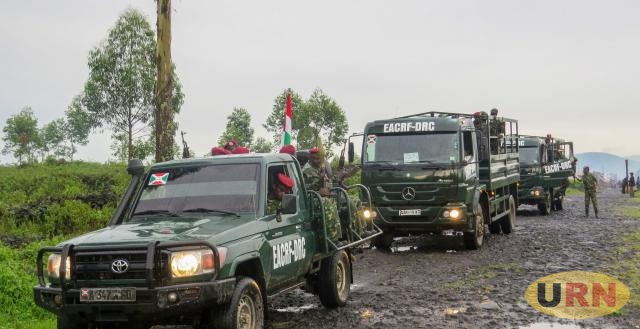
Kigali, Uganda | THE INDEPENDENT | Burundi has announced its decision to withdraw its National Defense Forces from the upcoming African Union Support and Stabilization Mission in Somalia (AUSSOM).
The move comes after a disagreement with Somalia over the allocation of troop numbers for the Burundi National Defense Forces (BNDF) and is a blow to regional peacekeeping efforts as the mission prepares to commence operations in 2025.
According to a statement from the Burundi Embassy in Addis Ababa, the disagreement centres on the number of troops Burundi would contribute to AUSSOM. Burundi had been seeking a larger allocation, but Somalia offered only 1,041 troops, which Burundi deemed inadequate and disrespectful as it wanted to deploy at least 2,000.
‘Following the lack of consensus between Burundi and Somalia on the allocation of numbers to the Burundi National Defense Forces, for the upcoming African Union Support and stabilization, Burundi’s Permanent Representative to the African Union HE Ambassador Willy Nyamitwe, held a phone call with his counterpart of Djibouti and Chair of the AU Peace and Security Council HE Ambassador Mahamoud Eybe, to convey Burundi’s unfortunate non-participation in AUSSOM”, reads the statement.
Despite efforts to resolve the issue, the two countries failed to reach an agreement. As a result, Burundi has decided to withdraw its troops from AUSSOM, which is set to replace the African Union Mission in Somalia (AMISOM) in January.
The withdrawal of Burundian troops could significantly impact AUSSOM’s readiness and capacity to fulfil its mandate. Burundi has been a key contributor to peacekeeping efforts in Somalia, with its troops playing a crucial role in counter-insurgency operations and stabilizing conflict-prone areas.
The African Union and the AU Peace and Security Council are expected to address the issue and ensure that AUSSOM remains operational and effective.
In a letter to the Minister of National Defense and War Veterans of Burundi, the Minister of Defense of the Federal Government of Somalia Abdulkadir Mohamed Nur expressed appreciation for Burundi’s contributions to Somalia’s peace and security and regret over the lack of consensus.
“We thank you for your timely response and for reiterating the position of the Republic of Burundi on this matter. While we regret that a consensus could not be reached regarding the allocation of numbers to the Burundi National Defense Forces (BNDF), we respect your decision and are forced to admit the non-BNDF participation in AUSSOM”, reads the statement.
It adds that “in light of this, we kindly request your esteemed office to dispatch a technical team that will commence the discussion of BNDF smooth and orderly exit from the mission and agree on timelines of handover of BNDF positions within ATMIS to the Somali National Armed Forces.
However, top security experts have shared their insights on the implications of Burundi’s withdrawal saying that having more troops is advantageous but compromising on a troop-contributing country’s terms can jeopardize the security of its personnel.
Sources also said that the decision for Burundi to withdraw was because of pressure from the people back home for losing thousands of soldiers to Al-Shabab.
Security analyst Fred Egesa said that the withdrawal of Burundi from Somalia is double-faced. He said Burundi was the second largest force which has stayed there fighting many complex wars, trained the Somali forces and overall mastered the fight against the rebels and therefore their exit will have some vacuum left.
“The Somalia forces need space to exercise what they have learned if they are to be considered a professional force and this is the time for the Somalia forces to systematically take their space”, said Egesa.
Egesa further said that the withdrawal may stretch the Somalia Forces and other complementary forces but that can be managed for Somalia must be allowed to systematically stand on their own. He believes that the Uganda Peoples Defense Forces-UPDF which is among the contributing forces can handle challenges.
Burundi first deployed troops in Somalia in December 2007 as part of the African Union Mission in Somalia (AMISOM). They were part of the troops that helped in the recapturing of key strategic locations in Mogadishu, including the Defense Ministry compound, in operations that involved heavy ground combat.
Reports also highlight Burundi’s resistance to deploying troops to the contested Gedo region, an area marked by tensions between Somalia and Ethiopia.
Burundi’s withdrawal comes amid Somalia’s plans to exclude Ethiopian forces from AUSSOM, a move driven by territorial, political and insurgency concerns and fears of Ethiopia re-framing Somalia’s security.
******
URN
 The Independent Uganda: You get the Truth we Pay the Price
The Independent Uganda: You get the Truth we Pay the Price



